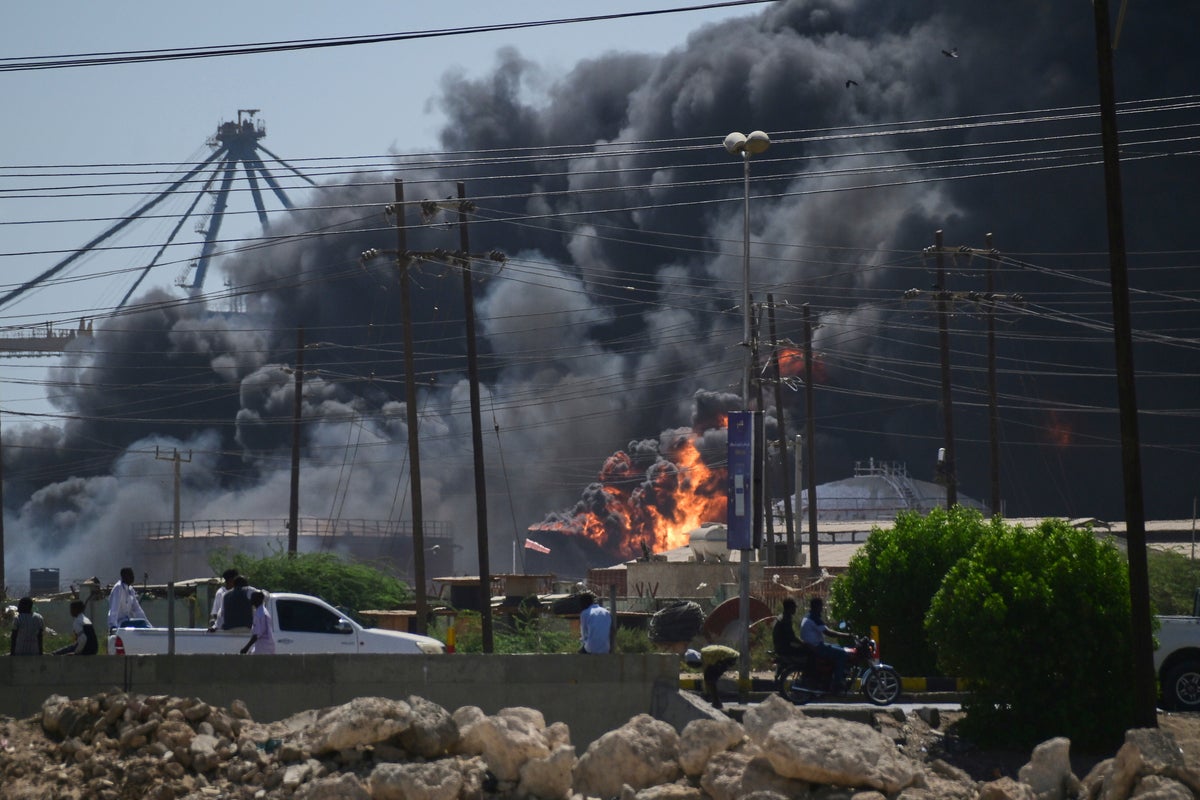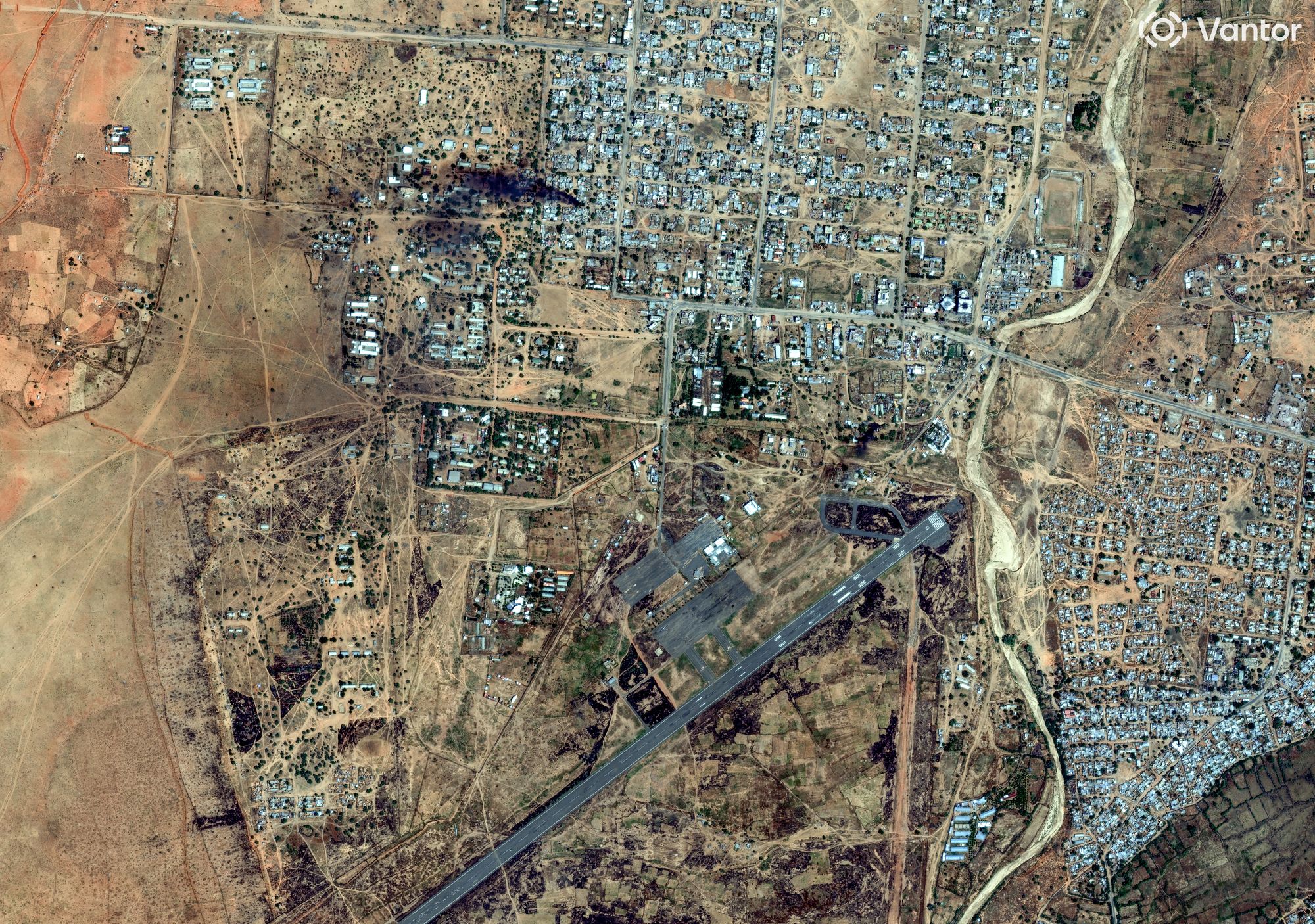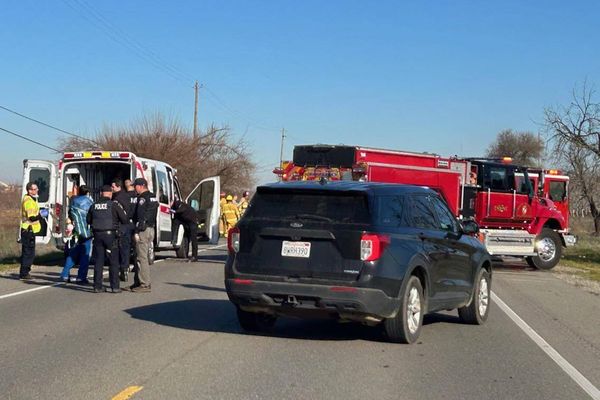
Paramilitary forces in Sudan have been accused of burning bodies and burying them in mass graves in a “desperate attempt to conceal evidence” of brutal killings in Darfur.
The Sudan Doctors Network claimed that the Rapid Support Forces (RSF) was trying to cover up its crimes after thousands of people were killed in the city of El Fasher.
The medical organisation condemned the alleged disposal as “one of the most inhumane acts in recent days” and reiterated that “these crimes cannot be erased through concealment or burning”.
In a post shared on X, it said: “The RSF has collected hundreds of bodies from the streets and neighborhoods of the city, burying some in mass graves and burning others completely in a desperate attempt to conceal evidence of their crimes against civilians.”
The “crimes” refer to the bloody massacre that took place on October 26 in El Fasher in which the RSF took control of Darfur and killed what humanitarian officials estimate to be over 2,000 people.
The International Organization for Migration estimates that around 82,000 people fled the city and surrounding areas in recent weeks after horrific accounts of rape, torture and mass killings.

The post continued: “What happened in El Fasher is not an isolated incident but rather another chapter in a full-fledged genocide, carried out by the RSF blatantly violating all international and religious norms that prohibit the mutilation of corpses and guarantee the dead the right to a dignified burial.
“The situation in El Fasher has gone beyond a humanitarian catastrophe to become a systematic genocide, targeting human life and dignity amid an appalling international silence that amounts to complicity.”
UN human rights spokesperson Volker Türk warned that those left behind in the city are at risk: “Today, traumatized civilians are still trapped inside El Fasher and are being prevented from leaving.”
El Fasher, the last major city in Darfur to fall to RSF paramilitaries, was "already the scene of catastrophic levels of human suffering (but) has descended into an even darker hell," said the UN's humanitarian chief Tom Fletcher.
A war has been ongoing in Sudan for two years and recently entered a new dangerous phase in October. Since then, the UN described Sudan as the world’s worst humanitarian crisis. Over 150,000 people are reported to have been killed and over 14 million displaced.
The RSF has also been targeting people based on the colour of their skin in a series of ethnic killings, according to Sylvain Penicaud of Doctors Without Borders.
Hassan Osman, a university student from El Fasher, told Al-Jazeera that residents with darker skin, especially Zaghawa civilians (who were the dominant ethnic group), were subjected to “racial insults, humiliation, degradation and physical and psychological violence” as they fled.
“If your skin is light, they might let you go,” he said. “It’s purely ethnic.”
The RSF has been contacted for comment.
Sudan war displaces 2,000 in three days as North Kordofan becomes new flashpoint
Thousands flee to overcrowded camps after Sudan's paramilitary captures el-Fasher
US boycotting G20, as Trump cites false claims of white genocide of host South Africa
Can the world prevent a genocide in Sudan?
Daughter of former South African president Jacob Zuma on trial over deadly riots
Manhunt launched after British man shot dead during robbery in Ghana







